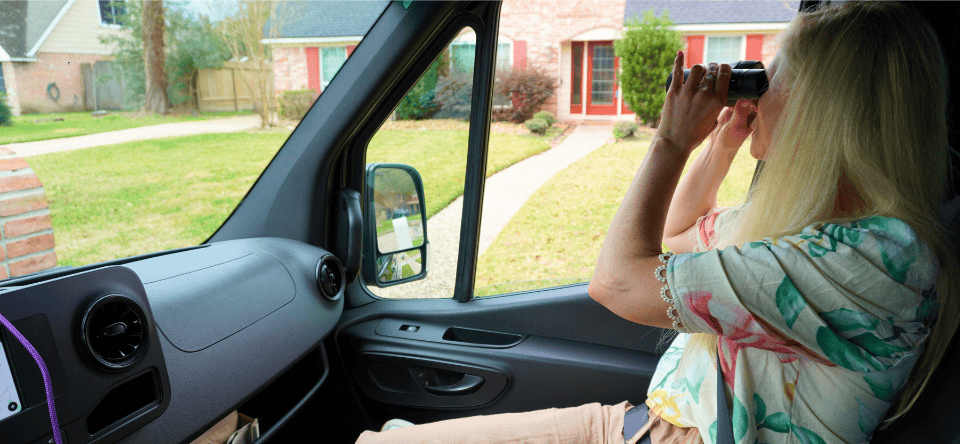Last Updated on August 27, 2025
Table of contents
How to Get Tax Deed Properties Cheap & Fast
Looking for affordable real estate deals? The fastest way to acquire property at a steep discount is to buy it before it reaches the tax auction. Counties publish lists of properties with delinquent taxes weeks before the sale. Investors who use those lists to contact owners directly can sometimes negotiate a sale, pay the back taxes, and take ownership without competing at auction. This strategy is often referred to as pre-auction tax deed investing.
What is the quick tip?
Here’s a simple tip: Get the list of homes in the county that haven’t paid their taxes. Before the auction starts, try to contact the owners. Most counties in the U.S. have to share a list of these homes. This list usually includes the addresses and when the homes will be sold. By looking at this list and doing some basic research, you can find homes that might be a good deal. You can reach out to the owners and see if they’d want to sell their house privately instead of going to auction. If you help the owner pay their taxes, you might be able to buy the house for much less than what it is worth.
Why this strategy works
- Less competition: At public auctions, many people are trying to buy the same thing. This means you could end up in a bidding war. On the other hand, when you make a deal before the auction, you talk directly with the owner. This way, you don’t have to worry about competing with lots of other buyers.
- Time to inspect: Before you spend any money, it’s a good idea to check out the property and look for any liens. This can be hard to do if you’re at an auction. You want to be careful and know what you’re getting into.
- Helps owners: Many people who own homes find it tough to keep up. They often feel stressed and would be happy to have an investor help them out. If someone offers to pay their taxes and give them a little cash, it can feel like a relief
- Flexible terms: Because there’s no minimum auction bid, you have more room to negotiate a win–win price.
Step‑by‑step guide to getting cheap tax‑deed properties
Getting cheap tax‑deed properties
- Identify upcoming tax sales
Visit your local county treasurer or tax collector’s website. The taxing authority usually maintains a list or website of tax sale properties, including addresses and sale dates. For example, Los Angeles County posts its tax sale list online.
- Research the properties
Perform due diligence just as you would for any real‑estate purchase. Check property records, zoning, outstanding liens and estimated market value. Failure to research can lead to disputes.
- Check redemption and bidding laws
Each state has different rules. Some allow owners to redeem the property by paying back taxes up until 5 pm the day before the sale; others have redemption periods after the sale. Ensure your strategy is legal in your state.
- Find and contact owners
Use skip‑tracing tools or public records to locate the owner’s mailing address or phone number. Approach them with empathy: explain that you can pay off their taxes and offer them some equity in return. Many homeowners prefer this to losing the property at auction.
- Negotiate and draft a contract
Agree on a purchase price and ensure you cover all delinquent taxes, interest, and penalties. Work with a real‑estate attorney to draft a contract and arrange escrow.
- Pay the taxes and close
Once the sale is complete, immediately pay the taxes to remove the county’s claim. Record the deed and confirm that no other liens remain.
Local considerations
Tax deed rules are different in each state. In Washington, when a tax deed auction happens, the property is sold without a chance to buy it back later. But, owners can still pay their unpaid taxes up until the day before the auction. In California, the first bid starts with the unpaid taxes plus some extra fees. Property owners have until 5 PM the night before the auction to pay off their taxes and keep their property. In states like Florida and Texas, people might get a few months after the auction to pay off their taxes and get their property back. Always check your county’s website or talk to a lawyer to understand the rules where you live.
Common mistakes to avoid
- Skipping due diligence: Not all tax‑delinquent properties are bargains; some have structural issues or liens.
- Ignoring redemption rights: If the owner has a right of redemption, your purchase could be reversed.
- Failing to budget for repairs and back taxes: Ensure you understand the total cost, including taxes, interest, legal fees and potential repairs.
Frequently Asked Questions
A tax deed property is a piece of land or a house that the owner has not paid taxes on for a long time. The county can sell these properties to get the money owed.
You can check your local county’s website. They usually have a list of homes that haven’t paid taxes. This list will tell you where the properties are and when they will go up for auction.
Yes, it can be risky. Some properties might have big problems like damage or other debts. It’s important to do research and check the condition before buying.
You can use public records to find the owner’s address or phone number. When you reach out, be friendly and let them know you can help them pay their taxes and buy the property. Many owners will appreciate the help.
Conclusion
Buying properties that have overdue taxes before they go to auction can be a great way to get real estate for less money and do it fast. You can start by getting the list from the county. Then, do some research and check out these properties. If you find the owner, you can make a fair offer. This way, you can avoid busy auctions and help homeowners at the same time. Always check local laws and talk to experts. Don’t be afraid to try this smart way to find good real estate deals. It might just lead you to some affordable options
If you’d like personalized help getting started, feel free to schedule a free call with our team or explore our free resources to learn more.









